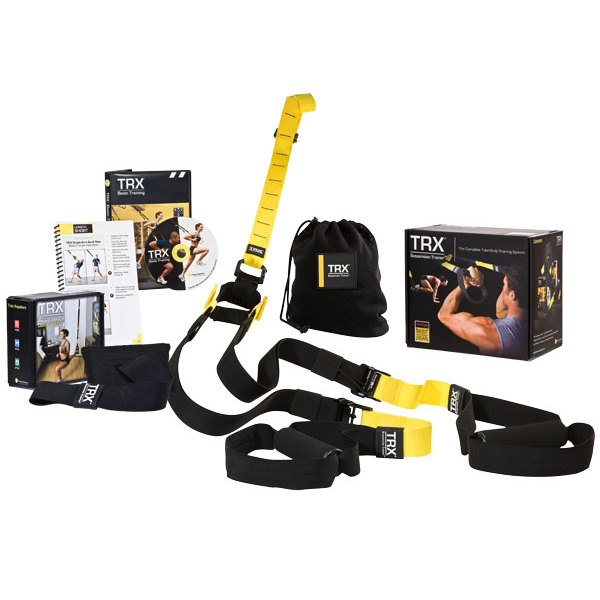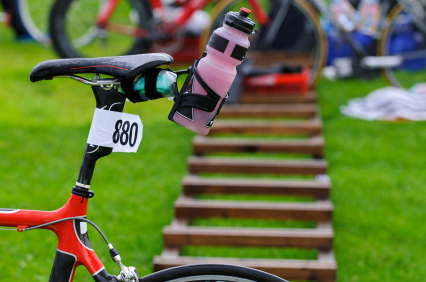If you train for endurance and don’t pay much attention to your nutrition, you could be sacrificing performance or worse, putting yourself in an unsafe situation. There is no other sport in which your performance is more dependent on good nutrition than endurance events such as marathons and triathlons. Improved nutrition can be the key to increasing stamina, having successful training and upping your performance come race day.
Endurance athletes have very demanding energy requirements. This article will cover two of the most common mistakes made by athletes: inadequate hydration and not consuming enough calories at the proper times. Everyone has different energy and hydration needs. However, there are some simple strategies to help you figure out what is best for you.
Secret #1: Hydrate, Hydrate, Hydrate
Proper hydration is always important, but it becomes critical when your body demands more water during endurance training and events. Even slight dehydration can adversely affect performance. Sadly, there is no rule of thumb or standard amount of fluid and electrolytes that athletes should consume. Everyone loses fluid at different rates depending on an your size, age and training level. You can, however, stay ahead of your hydration needs and recognize when you’re behind.
Signs of dehydration include nausea, cramps, dry mouth, dark urine, dizziness or chills. These are all indicators that you should rehydrate and replenish electrolytes – salts in the body that help you retain water. Electrolytes are lost when you sweat or become severely dehydrated. It is not uncommon to crave salty snacks like crackers, chips or soup during races. This is your body telling you that it needs electrolytes. Sports drinks are commonly used to stay up on hydration needs and replenish electrolytes at the same time.
Secret #2: Different Nutrition Needs for Different Stages
All athletes should practice good nutrition in every phase of their endurance training. On average, you burn approximately 100 calories for each mile run, so a 26 mile marathon requires about 2600 calories. It’s important to replenish lost calories throughout the run to satisfy the body’s energy requirements.
Approaching Race Day
In the days leading up to an event, athletes should stay well hydrated. Some athletes do best starting slightly over-hydrated to prevent dehydration, especially on hot days. Those who are more experienced adapt by conserving their electrolytes and fluid for longer periods so they will require less water. Everyone is different, so it’s best to determine what is right for you by experimenting during training. Test your performance under different levels of hydration and figure out what works best.
On the nutrition side, carb-loading can be beneficial for those participating in events that will last 90 minutes or more. This involves increasing the amount of carbohydrates in your diet to 70% of your total intake 2-3 days before the race. Cut back on your protein and fat consumption if you have to. Carb-loading can increase your body’s energy stores, reduce fatigue during the race, and improve performance.
During the Race
Determining the types and amounts of food to consume during your run will require a bit of trial and error. Recent studies have shown that up to 70% of all endurance runners experience gastrointestinal irritation. You may have to experiement with different bars and gels for fuel during training. Don’t overlook low-fiber carbohydrates like baked potatoes, bananas or cookies. By experimenting with a variety of foods, bars and gels, you should cultivate a list of go-to carbohydrates and proteins that you can use mid-run without stomach irritation and without affecting your performance.
Hitting the Wall
We’ve all heard about it…some runners refer to as the bunk, the crash or hitting the wall. Sometimes this takes the form of dizziness, vomiting or even hallucinations. In most cases, it is caused by low blood sugar or depletion of energy stores. The best thing to do is to slow down, eat a snack with some sugar and wait for signs of relief. It can also help to monitor your breathing and stay relaxed. These simple strategies usually help to pull you out of the dark. If your symptoms persist longer than 10 or 15 minutes, they may be signs of a more serious condition requiring you to stop and seek medical attention. Avoid hitting the wall by ensuring you continue to replace calories lost throughout the race.
After the event
Your job’s not done when you cross the finish line! Eat a recovery meal or snack with a ratio of 2-3 parts carbohydrate to 1 part protein within 30 minutes after your race. This typically isn’t hard for most runners to accomplish. You will likely be very hungry – this is your body’s way of telling you it needs nutrients replenished. Simple carbohydrates like white bread, rice, or sugary snacks can help. Taking advantage of this pivotal post-workout period propels your body to recover for the next training session or race. Without it, you can set yourself up for sluggish performance and lasting fatigue.
Endurance running and events continue to grow in popularity. I encourage you to participate when you can, but be aware of what fuels your body and your performance. Invest time in sound nutritional strategies to ensure better training and enhanced performance for your events.
 TRX
TRX